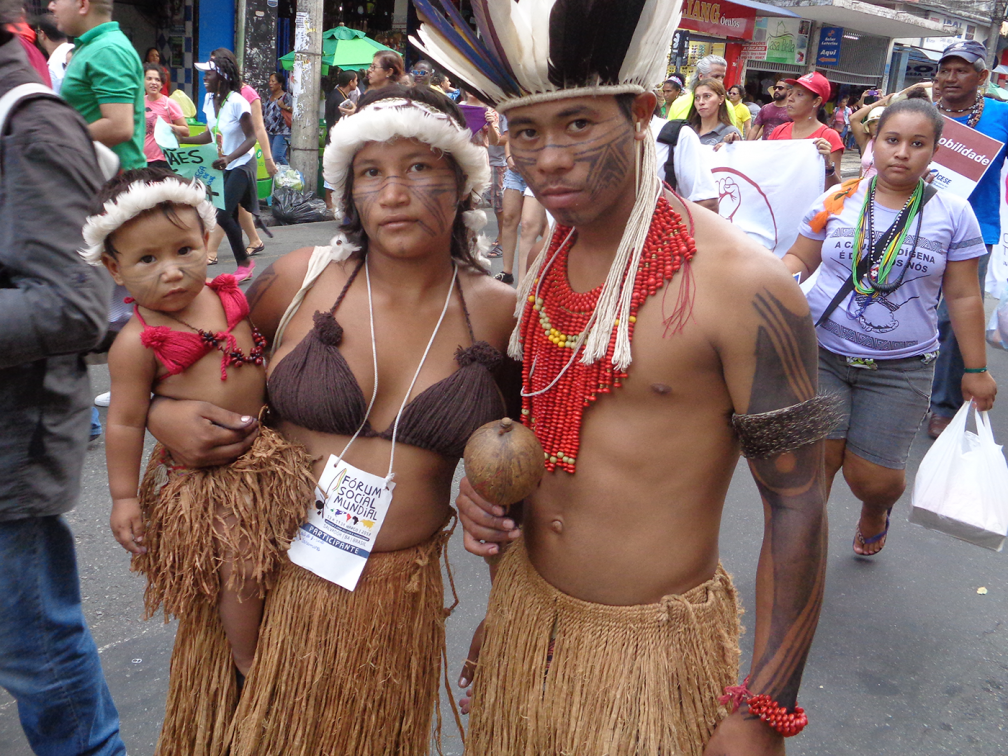The International Day of the World’s Indigenous Peoples is observed on 9th August each year to raise awareness and protect the rights of the world’s indigenous populations. This event also recognises the achievements and contributions that indigenous people make towards addressing world issues, such as environmental protection. There are between 370 and 500 million Indigenous Peoples worldwide, in over 90 countries. Although they make up just 5 percent of the global population, they account for about 15 percent of the extreme poor.
Columbans have long supported indigenous people in the Amazon, the Philippines, Australia and other regions. Fr. Shay Cullen in the Philippines sums up the problems facing indigenous peoples in the Philippines, who number around 11 million, saying, “the sacred rights of indigenous people that have occupied and peopled the Philippine lands and forests for thousands of years, while clearly stated in the Constitution and Law, are trampled upon and ignored.” He adds that, “the indigenous people are disgracefully considered inferior human beings, subjected to racist slurs and humiliation, and their rights continually violated.”
Columban Fr. Peter Hughes echoed these words from Peru last September. A Columban missionary there for five decades and the former Executive Secretary for Justice, Peace, and Development of CELAM, the collegial council of Latin America Bishops, has said: “We must insist on human and indigenous rights. We have legislation but it is not implemented.”
During the pandemic the Peruvian government opened the frontiers of indigenous areas to extractive industries and militarised them to protect mining companies. “This was to the detriment of the people in the Peruvian Amazon,” he added, reporting that people living in small communities in the forests and along the riverbanks were not protected, and many have died over the last six months.
He has been proud of the practical role the Catholic Church played a year earlier with the Synod on the Amazon in Rome. Around 97,000 people contributed to the gathering, and the Church listened even if the authorities in Amazon countries did not. Pope Francis, in Laudato Si’, “went far beyond the frontiers of the Church to call for protection of our common home,” and for indigenous peoples’ rights and environmental rights to go together. At the end of July 2021 the Pan-Amazonian Ecclesial Network (REPAM), which Fr. Peter works for, published its weekly map of pandemic incidence rates in Pan-Amazonia as the death toll reached 100,000 people in the Amazon. The report urged that more vaccines and immunisation were needed to fight the virus. Also, the establishment of a basic income for families suffering from the pandemic.
Indigenous people the world over are particularly vulnerable: their exclusion from decision-making processes, their struggle to continue to have the right to stay on their own lands, difficulty of protecting their rivers from pollution, and their lack of access to public services, including access to health care and food provision. The destruction of the huge geographical area of the forested Amazon is very important, not only for the people who live in the Amazon and not only for Latin America, but for the greater, wider world. When we speak about the Amazon, it is also a planetary issue because the destruction of the rainforest directly impinges on our world climate. The major issues like climate change, what is happening to the balance of rainfall all over the world, depend on a large part on places like the Amazon.
Our spiritual traditions are deeply enriched by the spirituality of indigenous peoples rooted in the gift of creation. Indigenous communities also have unique perspectives, having lived sustainably on their lands for thousands of years. In 1988, eco-theologian Fr. Sean McDonagh was instrumental in the formulation of the Pastoral Letter of the Catholic Bishops Conference of the Philippines (CBCP) entitled, “What is Happening to Our Beautiful Land?”. His books too are heavily influenced by living among the T’boli tribal people in the southern Philippine island of Mindanao for two decades. “I turned to the scriptures, most of all the Hebrew scriptures, which contain multiple theologies of creation, not just in the Book of Genesis, but also in the Book of Job, for example” he says and “I was supported, also, by the beliefs and culture of the T’boli people, who have a much more responsive approach to the natural world – never using it up or abusing it, because if they did they know they wouldn’t be able to survive.”
Another Columban, Australian Fr. Peter Toohey, worked with Aboriginal people in Australia for more than two decades. In an article for the Amazon Synod in 2019 he wrote: “Many First Nations people however do not want to be seen as victims. They are survivors, proud of their culture and history and determined to make their mark and assert their identity. In literature, drama, music and the arts, and in sport they bring together the richness of their culture and the pain of their exclusion – but also their ability to laugh at themselves and at us. One of their great gifts is the extraordinary ability to forgive. They have much to teach us surely about ourselves, our arrogance, about our sense of cultural and moral superiority. As a nation we need to lament our wilful blindness, and step back, allowing them to shape their own destiny. Only this way is it possible to heal the wounds of the past.”

“It is essential to show special care for indigenous communities and their cultural traditions. They are not merely one minority among others, but should be the principal dialogue partners, especially when large projects affecting their land are proposed. ”

